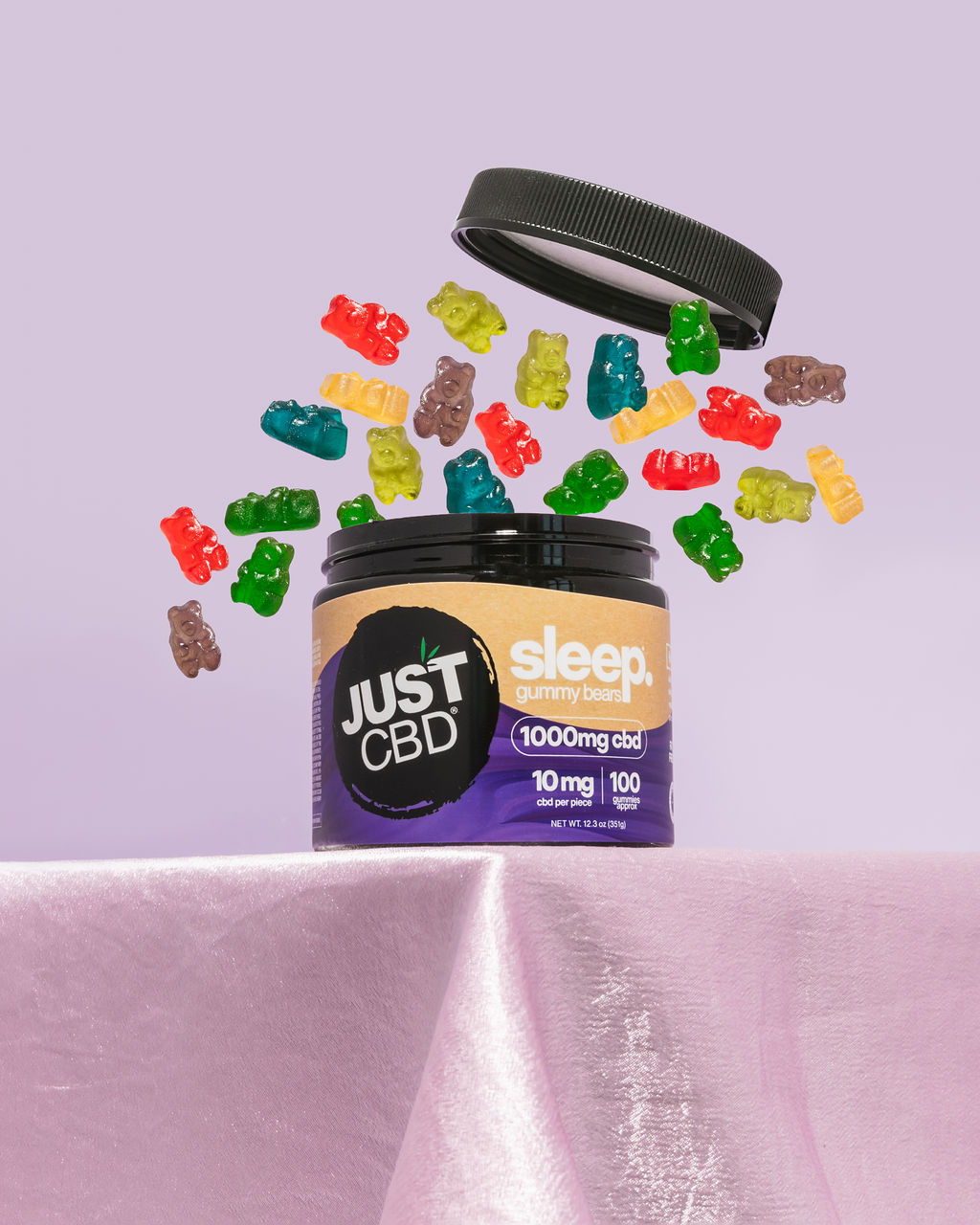Potential Benefits of Kratom Gummies for Relaxation
Kratom, an herbal supplement derived from the Mitragyna speciosa tree, has gained popularity for its potential therapeutic benefits, including relaxation and stress reduction. Recently, kratom gummies have emerged as a convenient and discreet way to consume this substance.
Effects on the Endocannabinoid System
Experts suggest that kratom gummies may offer relaxation benefits by interacting with the body’s endocannabinoid system (ECS). The ECS is a complex network of receptors and neurotransmitters involved in regulating various physiological processes, including mood, sleep, pain, and stress response. Kratom contains alkaloids, such as mitragynine and 7-hydroxymitragynine, which are believed to bind to opioid receptors in the brain. This binding may mimic the effects of opioids, leading to feelings of relaxation and analgesia.
Research on kratom’s effects on the ECS is still limited, but some studies suggest that kratom alkaloids may modulate the activity of endocannabinoids, such as anandamide. Anandamide is a naturally occurring neurotransmitter with mood-boosting and anxiolytic properties. By influencing anandamide levels, kratom may contribute to feelings of relaxation and reduced anxiety.
Impact on Neurotransmitters
Experts suggest that the potential relaxation benefits of kratom gummies stem from their interaction with the body’s endocannabinoid system (ECS). This complex network of receptors and neurotransmitters plays a crucial role in regulating various functions, including mood, sleep, pain perception, and stress response.
Kratom contains alkaloids, such as mitragynine and 7-hydroxymitragynine, which are believed to bind to opioid receptors in the brain. This binding may produce effects similar to opioids, leading to feelings of relaxation and pain relief. Additionally, kratom may influence the activity of endocannabinoids like anandamide. Anandamide is a naturally occurring neurotransmitter associated with mood elevation and anxiety reduction. By modulating anandamide levels, kratom could potentially contribute to feelings of calmness and reduced stress.
User Anecdotal Reports
While research on kratom’s effects is still ongoing, user anecdotal reports suggest that kratom gummies can promote relaxation and stress reduction. Users often describe experiencing a sense of calmness, reduced anxiety, and improved mood after consuming kratom gummies.
These reported benefits are believed to be linked to kratom’s interaction with the body’s endocannabinoid system (ECS). The ECS plays a key role in regulating mood, sleep, pain, and stress responses. Kratom alkaloids are thought to bind to opioid receptors in the brain, potentially mimicking the effects of opioids and leading to feelings of relaxation.
It is important to note that user experiences can vary widely, and individual responses to kratom may differ. Some individuals may experience stronger effects than others, while some may not experience any noticeable effects at all.
Risks and Side Effects
Despite its growing popularity, it’s crucial to understand the potential risks and side effects associated with kratom consumption. Like any substance, kratom can have adverse effects, and these can vary depending on dosage, individual sensitivity, and other factors.
Possible Drug Interactions
Some common side effects of kratom include nausea, vomiting, constipation, dizziness, itching, and dry mouth. In higher doses, kratom can cause more serious side effects such as drowsiness, confusion, seizures, and respiratory depression. It is important to start with a low dose and gradually increase it as needed.
Kratom may interact with certain medications, including antidepressants, opioids, and benzodiazepines. It can also interact with substances that affect the central nervous system, such as alcohol. If you are taking any medications or have any health conditions, it is important to talk to your doctor before using kratom.

Withdrawal Symptoms
Long-term use of kratom can lead to dependence and withdrawal symptoms when use is stopped abruptly. These symptoms can include anxiety, insomnia, muscle aches, nausea, irritability, and restlessness.
It’s important to note that kratom has not been approved by the U.S. Food and Drug Administration (FDA) for any medical use, and its safety and long-term effects are still being researched.
Long-Term Health Effects
Despite its growing popularity, it’s crucial to understand the potential risks and side effects associated with kratom consumption. Like any substance, kratom can have adverse effects, and these can vary depending on dosage, individual sensitivity, and other factors.
Some common side effects of kratom include nausea, vomiting, constipation, dizziness, itching, and dry mouth. In higher doses, kratom can cause more serious side effects such as drowsiness, confusion, seizures, and respiratory depression. It is important to start with a low dose and gradually increase it as needed.
Kratom may interact with certain medications, including antidepressants, opioids, and benzodiazepines. It can also interact with substances that affect the central nervous system, such as alcohol. If you are taking any medications or have any health conditions, it is important to talk to your doctor before using kratom.
Long-term use of kratom can lead to dependence and withdrawal symptoms when use is stopped abruptly. These symptoms can include anxiety, insomnia, muscle aches, nausea, irritability, and restlessness.
It’s important to note that kratom has not been approved by the U.S. Food and Drug Administration (FDA) for any medical use, and its safety and long-term effects are still being researched.
Regulatory Status and Legality
The legal status of kratom varies significantly around the world. In some countries, it is completely banned, while in others it is legal but regulated. The United States has taken a more nuanced approach, with individual states having their own laws regarding kratom sales and possession. This patchwork of regulations creates confusion and uncertainty for consumers.

Current Legal Landscape
The regulatory landscape surrounding kratom is complex and evolving.
- Some countries have completely banned kratom due to concerns about its potential adverse effects and lack of robust scientific evidence regarding its safety and efficacy.
- Other countries have adopted a more lenient approach, legalizing kratom for personal use or allowing its sale with certain restrictions.
In the United States, the FDA has not approved kratom for any medical use, and its sale is currently unregulated at the federal level. However, individual states have taken differing stances on kratom’s legality:
- Some states have outright banned kratom, while others have legalized it with varying restrictions on sales, potency, or labeling.
- The lack of a uniform national policy creates challenges for consumers trying to navigate the legal landscape and raises concerns about potential safety issues associated with unregulated products.
Research Gaps
The legal status of kratom is complex and varies significantly around the world. In some countries, it is completely banned, while in others it is legal but regulated.
The United States has taken a more nuanced approach, with individual states having their own laws regarding kratom sales and possession. This patchwork of regulations creates confusion and uncertainty for consumers.
Research on kratom’s long-term effects and potential risks is still ongoing. More studies are needed to fully understand its impact on human health, particularly with prolonged use.
There is a need for more comprehensive clinical trials to evaluate the efficacy and safety of kratom for specific medical conditions.
Further research is also required to determine optimal dosages and potential interactions with other medications or substances.
Expert Recommendations and Guidelines
Expert recommendations on using kratom gummies for relaxation are still emerging due to ongoing research into its effects and potential risks.
Dosage Considerations
Experts suggest that kratom gummies may offer relaxation benefits by interacting with the body’s endocannabinoid system (ECS). The ECS is a complex network of receptors and neurotransmitters involved in regulating various physiological processes, including mood, sleep, pain, and stress response. Kratom contains alkaloids, such as mitragynine and 7-hydroxymitragynine, which are believed to bind to opioid receptors in the brain. This binding may mimic the effects of opioids, leading to feelings of relaxation and analgesia.
Research on kratom’s effects on the ECS is still limited, but some studies suggest that kratom alkaloids may modulate the activity of endocannabinoids, such as anandamide. Anandamide is a naturally occurring neurotransmitter with mood-boosting and anxiolytic properties. By influencing anandamide levels, kratom may contribute to feelings of relaxation and reduced anxiety.
- Start with a low dose and gradually increase it as needed.
- Avoid consuming kratom if you are pregnant or breastfeeding.
- Be cautious about combining kratom with alcohol or other CNS depressants.
- If you experience any adverse effects, discontinue use and consult a healthcare professional.
Importance of Quality Control
Expert recommendations regarding kratom gummies for relaxation emphasize caution and responsible use. Given the lack of comprehensive research on long-term effects and potential risks, experts advise starting with a low dose and gradually increasing it as needed to assess individual tolerance. They also strongly advise against using kratom if pregnant or breastfeeding.
Quality control in the production and distribution of kratom products is crucial for ensuring safety and consistency. Experts stress the importance of purchasing kratom from reputable sources that follow good manufacturing practices (GMP) to minimize the risk of contamination, adulteration, or inaccurate dosage.
Due to the complexity of kratom’s effects on the body, experts recommend consulting a healthcare professional before using it, especially if you have pre-existing medical conditions, are taking medications, or have a history of substance abuse.
Consulting a Healthcare Professional
Expert recommendations regarding kratom gummies for relaxation emphasize caution and responsible use. Given the lack of comprehensive research on long-term effects and potential risks, experts advise starting with a low dose and gradually increasing it as needed to assess individual tolerance. They also strongly advise against using kratom if pregnant or breastfeeding.
Quality control in the production and distribution of kratom products is crucial for ensuring safety and consistency. Experts stress the importance of purchasing kratom from reputable sources that follow good manufacturing practices (GMP) to minimize the risk of contamination, adulteration, or inaccurate dosage.
Due to the complexity of kratom’s effects on the body, experts recommend consulting a healthcare professional before using it, especially if you have pre-existing medical conditions, are taking medications, or have a history of substance abuse.
Find the best Kratom Gummies near you
- Thc Beverages In Indiana IN - November 15, 2025
- Who Should Not Get Dermal Fillers? - October 31, 2025
- What Is Relational Trauma And How Does It Affect Future Relationships? - October 30, 2025
